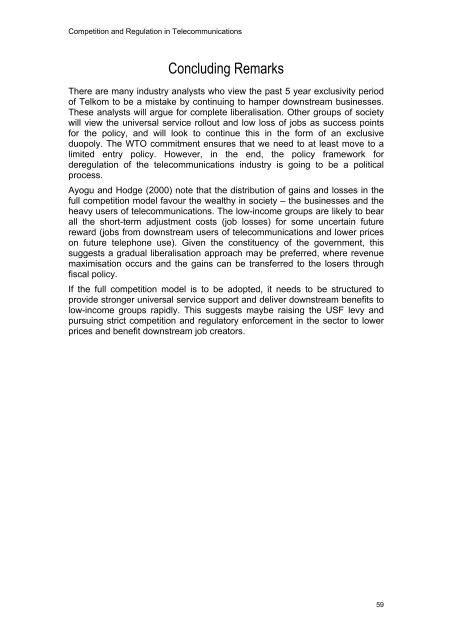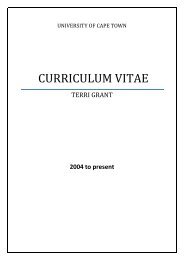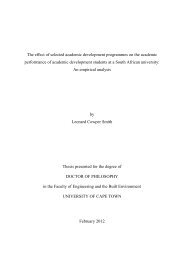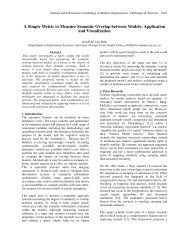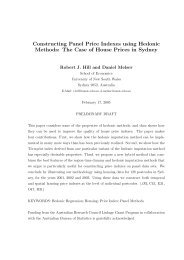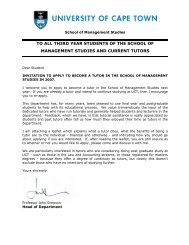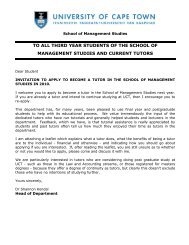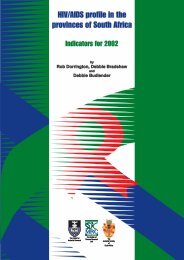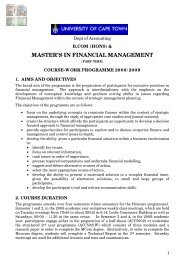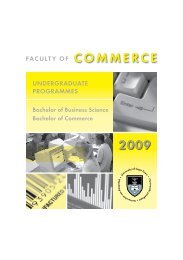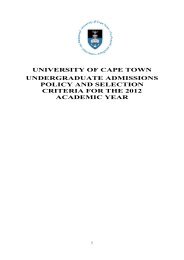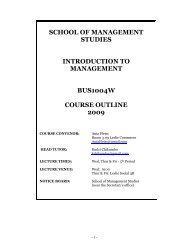Competition and Regulation in the Telecommunications Industry in ...
Competition and Regulation in the Telecommunications Industry in ...
Competition and Regulation in the Telecommunications Industry in ...
Create successful ePaper yourself
Turn your PDF publications into a flip-book with our unique Google optimized e-Paper software.
<strong>Competition</strong> <strong>and</strong> <strong>Regulation</strong> <strong>in</strong> <strong>Telecommunications</strong>Conclud<strong>in</strong>g RemarksThere are many <strong>in</strong>dustry analysts who view <strong>the</strong> past 5 year exclusivity periodof Telkom to be a mistake by cont<strong>in</strong>u<strong>in</strong>g to hamper downstream bus<strong>in</strong>esses.These analysts will argue for complete liberalisation. O<strong>the</strong>r groups of societywill view <strong>the</strong> universal service rollout <strong>and</strong> low loss of jobs as success po<strong>in</strong>tsfor <strong>the</strong> policy, <strong>and</strong> will look to cont<strong>in</strong>ue this <strong>in</strong> <strong>the</strong> form of an exclusiveduopoly. The WTO commitment ensures that we need to at least move to alimited entry policy. However, <strong>in</strong> <strong>the</strong> end, <strong>the</strong> policy framework forderegulation of <strong>the</strong> telecommunications <strong>in</strong>dustry is go<strong>in</strong>g to be a politicalprocess.Ayogu <strong>and</strong> Hodge (2000) note that <strong>the</strong> distribution of ga<strong>in</strong>s <strong>and</strong> losses <strong>in</strong> <strong>the</strong>full competition model favour <strong>the</strong> wealthy <strong>in</strong> society – <strong>the</strong> bus<strong>in</strong>esses <strong>and</strong> <strong>the</strong>heavy users of telecommunications. The low-<strong>in</strong>come groups are likely to bearall <strong>the</strong> short-term adjustment costs (job losses) for some uncerta<strong>in</strong> futurereward (jobs from downstream users of telecommunications <strong>and</strong> lower priceson future telephone use). Given <strong>the</strong> constituency of <strong>the</strong> government, thissuggests a gradual liberalisation approach may be preferred, where revenuemaximisation occurs <strong>and</strong> <strong>the</strong> ga<strong>in</strong>s can be transferred to <strong>the</strong> losers throughfiscal policy.If <strong>the</strong> full competition model is to be adopted, it needs to be structured toprovide stronger universal service support <strong>and</strong> deliver downstream benefits tolow-<strong>in</strong>come groups rapidly. This suggests maybe rais<strong>in</strong>g <strong>the</strong> USF levy <strong>and</strong>pursu<strong>in</strong>g strict competition <strong>and</strong> regulatory enforcement <strong>in</strong> <strong>the</strong> sector to lowerprices <strong>and</strong> benefit downstream job creators.59


